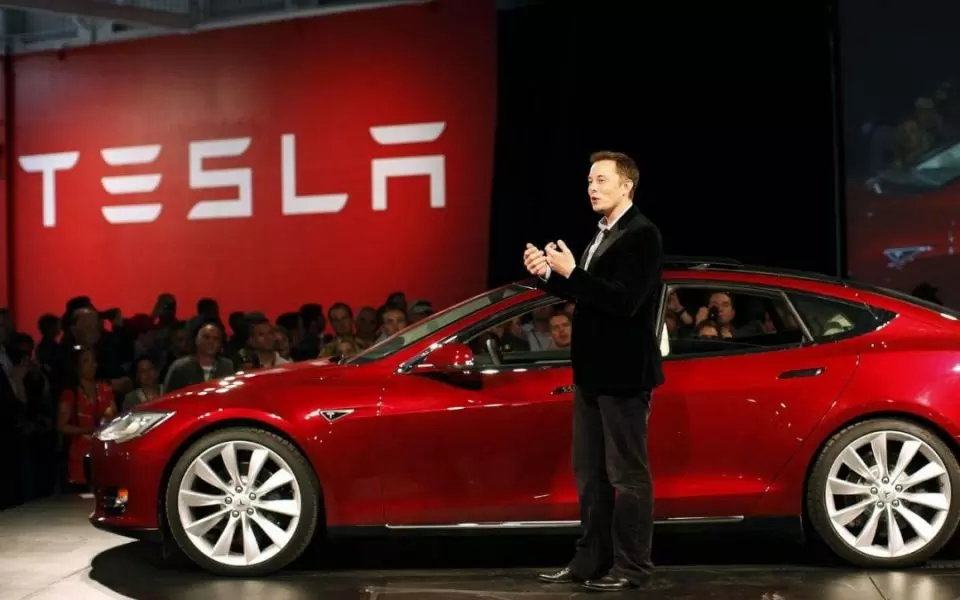
Musk calling off India trip reflects recalibration within Tesla
Despite the immediate disappointment over Musk's decision to postpone his visit to India, the long-term prospects for Tesla's involvement in India remain promising but quite challenging,

Elon Musk's unexpected decision to cancel his highly anticipated visit to India must have certainly hurt the Modi government's image, as it was hopeful of a mega-billion-dollar deal announcement from him ahead of the Lok Sabha elections.
However, last-minute behind-the-scenes developments involving several key business houses added to Tesla's troubles at home and might have led to Musk's rescheduled visit. Tesla's promised entry into India has attracted severe criticism from automakers such as Tata Motors and Mahindra & Mahindra.
Originally scheduled to meet with Prime Minister Narendra Modi to discuss potential investments and collaborations, Musk cited "very heavy Tesla obligations" as the reason for his abrupt change of plans. According to previous reports, Musk was set to announce a $2-3 billion investment to set up a factory in India and plans to launch Starlink, which offers high-speed internet connectivity via satellites. For Starlink, access to India was considered a gold mine because of its large population and being the second-largest market after China.
India - a difficult market
For foreign car makers, India has always been a difficult and challenging market. General Motors and Ford withdrew after selling cars here for decades as the regulatory environment became increasingly difficult to navigate. Except for Hyundai, the other foreign automobile manufacturers have less than a 5 per cent share in India even though they have been here for several years. For example, Toyota has a market share of around 6 per cent in the country where it set up its operations in 1998.
Even Tesla's entry into India comes with conditions. It was seen as a quid pro quo based on the promise that Tesla would set up an EV manufacturing factory in India. Musk's earlier foray into offering internet service in India a few years ago was abruptly cancelled after the Department of Telecom informed his internet company, Starlink Internet Services, that it needed a licence for its operations in the country.
Even as Starlink had to withdraw its operations, Reliance Jio announced that it would offer satellite-based internet service in the country, which would pit it directly against Starlink whenever it was launched in India.
India's ambitious goal to transition to an all-electric car fleet by 2030 placed significant importance on Musk's visit. Tesla's potential entry into the Indian market was viewed as a catalyst for accelerating this transition, promising increased EV adoption, and the introduction of advanced technologies and manufacturing capabilities.
However, Tata Motors and Mahindra & Mahindra are nervous about Tesla's entry as it plans to launch cars in the price range of ₹20-30 lakhs, which is where most sales happen, according to a US-based news agency. Tesla has also sought lower import tax initially, the news agency reported, as a pre-condition to setting up a full-fledged manufacturing plant in India.
Tesla’s challenges
Meanwhile, Tesla's journey is fraught with challenges beyond any single market. The company is navigating through internal restructuring, operational setbacks, and intense competitive pressures, particularly in China. Recently, Tesla undertook an organisational overhaul, including a 10 per cent workforce reduction (around 14,000). These layoffs indicate a broader strategy to streamline operations and enhance efficiency amid external economic pressures.
The EV maker has also faced several production challenges, most notably the recall of nearly 4,000 Cybertrucks due to issues with accelerator pedals.
Earlier this week, Tesla reported disappointing results for the first quarter ended March 2024. Its net profit fell 55 per cent to $1.13 billion, while revenues dropped 9 per cent to $21.3 billion from $23.33 billion.
Before the results came out, Tesla also announced cuts in vehicle prices. Tesla, Model Y, and Model X prices were slashed following a fall in sales.
Competitive Pressures
In the Chinese market, Tesla faces fierce competition from local manufacturers who offer more affordable alternatives. This has reduced Tesla's market share and forced the company to reconsider its pricing and market penetration tactics.
Musk's postponement of the India visit seems part of a more significant strategic recalibration within Tesla. Confronted with harsh market realities and internal challenges, it is trying to stabilise its core operations as against over-aggressive expansion. This cautious approach is evident in Tesla's decision to delay the introduction of a low-cost EV model, reflecting a strategic shift to align product strategies more closely with current operational and market capabilities.
Tesla’s India prospects promising but challenging
Despite the immediate disappointment over Musk's decision to postpone his visit to India, the long-term prospects for Tesla's involvement in India remain promising but quite challenging, too. Tesla's potential market entry could usher in significant technological and economic benefits, such as advanced clean energy solutions and new job opportunities. If Tesla is able to stabilise its global operations and follow through with its investment plans, it could play a pivotal role in transforming India's automotive sector and the broader economic landscape if it can overcome India's dynamic regulatory and market environment.
Elon Musk's cancellation of his trip to India reflects the complex operational and strategic challenges Tesla faces globally. While this poses immediate challenges for India's EV ambitions, the long-term potential for Tesla's involvement in the region remains substantial. Tesla and India may need to exercise strategic patience, focussing on future collaborations that could significantly impact the automotive and technological fields.
As Tesla continues to adapt its global strategies and India adjusts its economic policies, the partnership between them could become a defining feature of the EV landscape.

